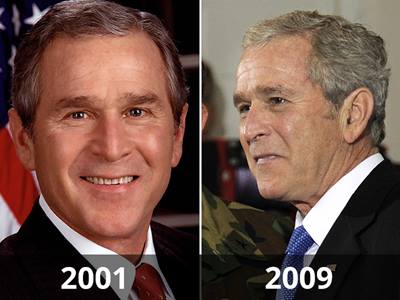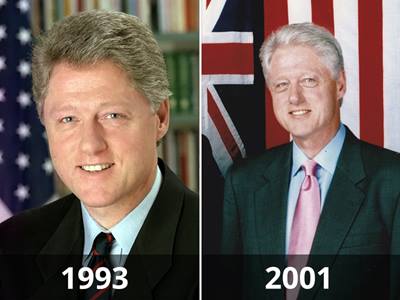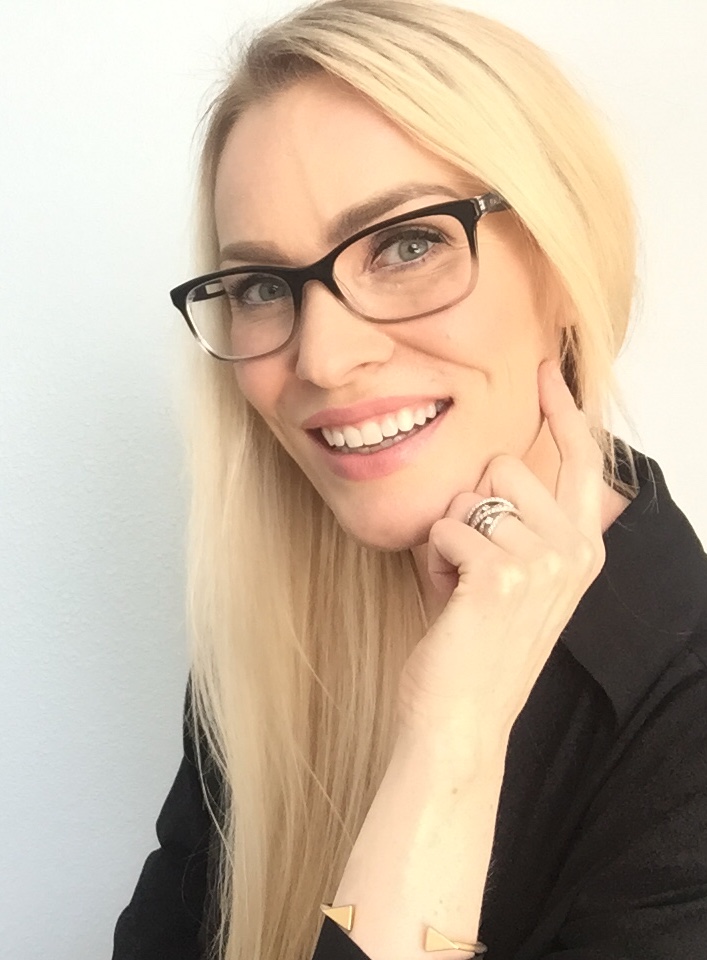SUMMARY:
In this post, I discuss the science behind stress and its influence on the aging process. I also include the three best scientifically-proven methods for combatting the effects of stress on the aging process. I include the best method for testing your biological age. You’re going to LOVE the information in this post!
FULL TRANSCRIPT:
In today’s video I want to discuss the effects of stress on the aging process. As a physician who specializes in aging well practices, hormone balance, weight loss etc. I get asked questions about the aging process on a daily basis. And just in case you are wondering, I could talk about this topic for hours. I am incredibly passionate about mitigating stress and its effects on your quality of life.



Have you ever wondered why presidential candidates appear fresh and vibrant in their campaigns and after their four-year (or eight-year) term in presidency looked haggard, grey-haired, wrinkled and old? Maybe you have had feelings lately that your body feels older than you would like. I know what this is like. In fact, If you caught my stroke story a couple of posts back (HERE), you know that I was on the verge of aging much more rapidly than I wanted to before I was 40.
THE MYTH:
Here’s the thing: we used to believe that the disease processes we see in the elderly were normal processes of aging. However, with the emerging science of epigenetics (or the study of environmental influences on gene expression), we know that the stress can influence our biological age more than genes themselves.
Believe it or not, stress hormones have a major role in determining your genetic expression. A prime example is the fun stress hormone, cortisol. Cortisol and adrenaline are your fight or flight hormones and get you prepared for action. These were meant to be emergency chemicals only. In modern life, for most individuals, these chemicals are on, most of the time.
THE SCIENCE:
The thing with chronic elevated cortisol is that is a catabolic hormone and breaks down proteins into amino acids. From these amino acids, your body goes through a process called deamination which is the breakdown of amino acids into ammonia, carbon skeletons, and hydrogen ions. The carbon skeletons form carbohydrates and glucose (a biochemical process known as gluconeogenesis). Essentially, gluconeogenesis is the process the body uses to convert amino acids or proteins into sugar molecules. In essence, the body breaks itself down in times of stress, for fuel.
So what about our lovely before and afters of presidential terms? Guess what collagen and underlying structures of the skin are made from? Yep, amino acids. So we know that stress breaks down precious amino acids and speeds up the physical aging process. But it also speeds up the rate at which you age biologically. Here’s where we get into epigenetics and how stress can affect your overall health.
Stress can create an inflammatory response that destroys the telomeres on your chromosomes.Telomeres are the shoelace-like caps at the end of a chromosome that ultimately determines the longevity of that cell. Each time the cells divide, the telomere length gets shorter until eventually, the cell dies. An enzyme called telomerase helps to increase the length of telomeres so this is an important enzyme being researched right now because the length of your telomeres predicts true biological age and the genesis of disease better than any other marker. Any disease associated with aging is related to this length.
Therefore, in the case of telomeres, size does matter. People with shorter telomeres get sick more often. Chronic stress shortens telomeres early. Longer telomeres protects from cardiovascular disease, dementia, and other age-related diseases. But, you don’t want telomeres to be too long as cells that don’t divide properly are at risk for becoming cancerous. With telomere length, we want the Goldilocks size..large, but not too large. Just right.
Hormesis is the Goldilocks level of an optimal amount of stress on cellular activity. Too little and your cells suffer. Too much and your cells degenerate faster. Perfectly stressing of the organism is key. Chronic inflammation from over-stressing cells (think intense regular exercise, environmental toxicity, poor dietary habits, toxic relationships) can create degenerative cascades.In fact, the repercussions of toxic levels of stress can have serious deleterious effects on every system in your body as we learned earlier.
TESTING YOUR BIOLOGICAL AGE:
We now can determine true biological age and telomere length through Flow-FISH cytometry. If you don’t have access to this test (it’s several hundred dollars) how do you determine your biological age? You can test such things as bone density, inflammatory markers in your blood, cognitive tests, speed tests, coronary calcium scores, body fat or lean muscle mass, endocrine function (especially levels of DHEA). However, telomere testing is the best method for determining biological age.
SO, WHAT CAN YOU DO?
So are we all doomed to age quickly under the pressures of chronic stress? Well, yes and no. The consequences will occur if you do nothing. The truth is, we must reduce chronic stressors to improve longevity. Multiple studies have demonstrated that people who are happy and healthy are not only nicer; but, their biological aging slows down. We know from research that people that are socially disadvantaged, have histories of adversity and trauma, have shorter telomere length. Unpublished studies and newer research demonstrate that prenatal stress is creating shorter telomere length in the chord blood. So be extra nice to pregnant women, people! Dr. Elissa Epel, professor at UCSF who wrote the book, “The Telomere Effect” has discussed these studies in greater detail. So, I encourage you, if you are interested in this cutting edge research to check her out.
As promised, I want to provide you with some simple, yet effective, scientifically-proven methods for improving telomerase activity and gene expression.
The most important things you can do to increase your longevity and performance, based upon the best research are the following:
- Improve your social connection. You need a tribe that you feel connected to and supported by. This could be a volunteer group, a church group, a mastermind group, or a gym class. Find your tribe and fill your days with people who lift you up and inspire you.
- Know your mind. Pay attention to the negative thoughts you have throughout the day. And here is where it gets really exciting. The research is showing that how you train your brain to think before you go to bed and your attitude throughout the day has a substantial effect on cellular mitochondria function, and how you think improves the enzymatic activity of telomerase, creating longer telomeres, which in essence improves longevity. Simply thinking of three things that you are grateful for before you hit the pillow and monitoring your self talk throughout the day, is all that it takes. The best tool for changing your mindset is to use affirmations and visualizations. You may need some help in changing your current mental comfort zones, from average to extraordinary. I have an entire video to help you get started on this and I will link it HERE FOR YOU.
- Effective exercise. Exercise is important; but not too much. The body is constantly searching for avoidance of a threatened state. So, in your workouts, this translates to keeping high-intensity interval training to a minimum (like 10-15 minutes). The rest of your weekly exercise should not be too vigorous. If you are feeling tired after a workout, you probably overdid it. If you need help creating the ideal exercise routine for getting in your best shape with minimum effort, don’t worry, I’ve got you. You can check out my video here to help you find your minimum effective dose, HERE.
NOW, IT’S YOUR TURN:
I’ll bet you’re a little bit like me. You thought that this post provided some interesting material but you’re not sure where to start and how much you will actually do. There are two types of people. Those who hear information and move on without any action and those who act upon good advice. Do me a favor. Just pick one area that you know you need help (social activity, reprogramming your mind, or improving your exercise) and then pick one thing to do this month as your monthly challenge. Maybe you will choose to join a volunteer group or join a dance class. Maybe you will choose one life-affirming affirmation to say each day. Perhaps, you will take a short walk each day. Whatever you choose, just imagine your life with less stress, improved health, better relationships, and higher returns in the happiness department.
Remember that while it always important to strive for looking your best, also endeavor to love your best and to live your best.
All the best to you, my friend! XO,
Dr. Linné

